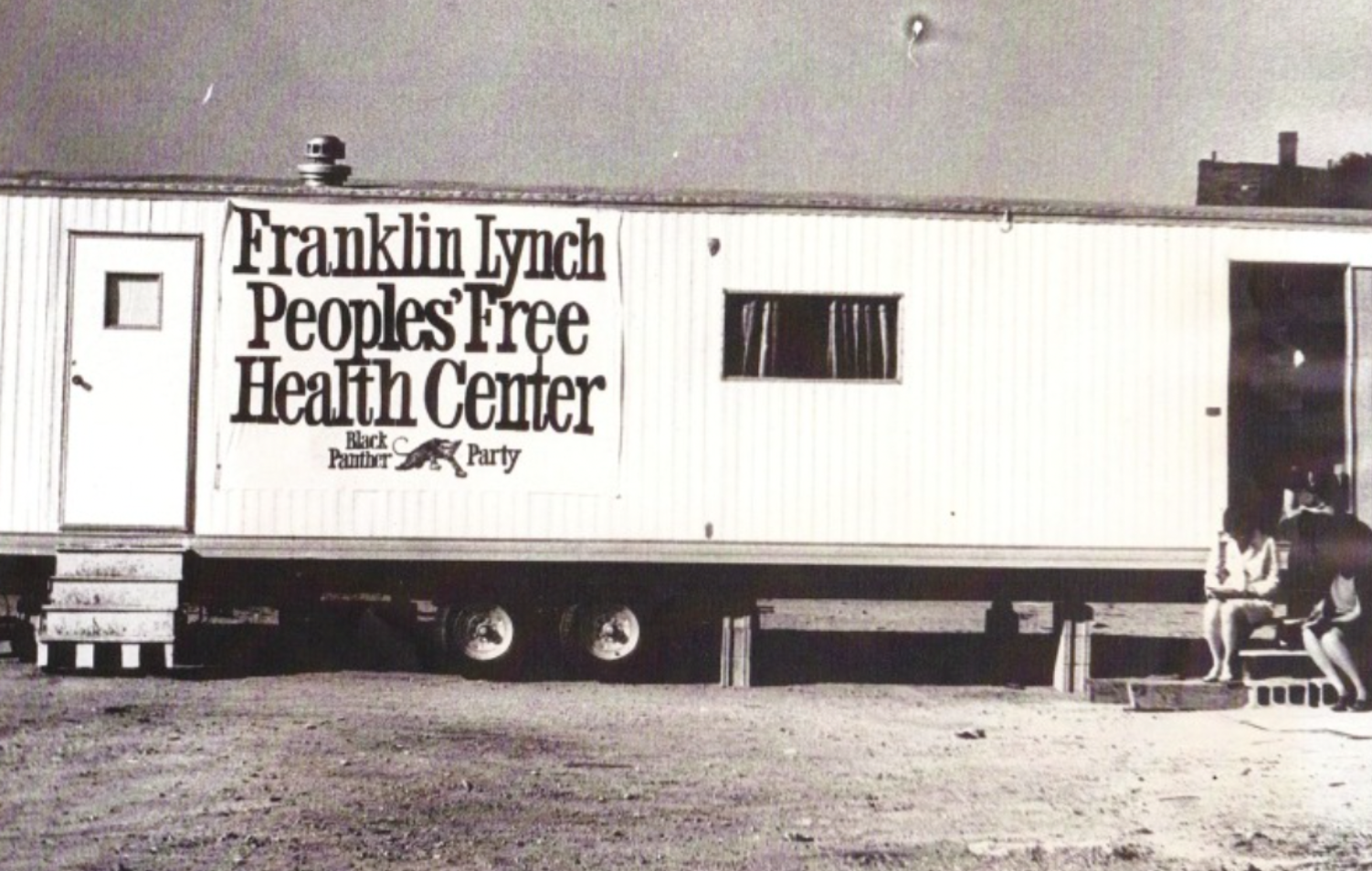DEFINING HEALTH CARE
Health care often extends beyond the work of the hospital, especially in low-income communities of color that have had to care for themselves because of ongoing systems of exclusion and disinvestment. Health care does not only look like vaccinations and check-ups; it can also look like ensuring a community’s access to food, clean water, affordable and safe housing, transportation, and education. Health care can (and must!) also look like community care — people coming together and building power to heal other people.
THE BLACK PANTHERS AND “SURVIVAL PROGRAMS”
The Black Panther Party (BPP) held this definition of health care dear to their hearts and to their organizing. In 1968, New Haven’s BPP worked with Welfare Moms of New Haven to start the John Huggins Free Breakfast for Children Program at the Newhallville Teen Lounge on Shelton Ave. Similar breakfast programs at other BPP chapters helped put pressure on both local and federal government to feed children before school. These efforts would ultimately lead to the current federally funded free meal programs we have in schools today.
The breakfast programs were just one of many of the BPP’s “Survival Programs,” which the Panthers described as a form of “medical self-defense” against the dehumanization of and systemic violences against Black and Brown bodies in medicine. BPP also organized a free clothing program, their own ambulance service, community health education, a service to escort senior to appointments, and Peoples’ Free Medicial Clinics (PFMCs). The PFMCs provided first aid, childhood vaccinations, drug and alcohol rehabilitation, screenings for lead posioning, tuberculosis, diabetes, high blood pressure, and sickle cell anemia. Their widespread community education initiative on anemia and the government’s dismissal of the disease also pushed for Congress to pass the National Sickle Cell Anemia Control Act in 1972.
Keeping our definition of health care in mind, BPP also founded a legal aid program, worked on lead-abatement initiatives for low-income housing, combatted rent hikes, taught self defense classes, protested Yale’s displacement of Black people in New Haven, and never separated political education from health education (because, clearly, health is political).
WE KEEP US SAFE
BPP recognized the distrust that Black and Brown communities may have in mainly white-led mainstream health care establishments due to historical and ongoing racial traumas. They staffed their free clinics with trusted community members and volunteer healthcare professionals who helped train folks as community health workers, lab technicians, and patient advocates. Their other survival programs, including free breakfasts, would similarly be run by and for folks from the neighborhood.
The police would often attempt to scare people away from the BPP’s programs, showing up at the Newhallville Teen Loungue during breakfast. The clinics were often raided by police, harassed by city health inspectors, or challenged with similar bureacratic barriers. This is one example of how the carceral state attempts to disrupt and destroy community building and resistance, but, evidently, the Black Panthers’ legacy has survived and created important and beautiful things that we still live with today.




